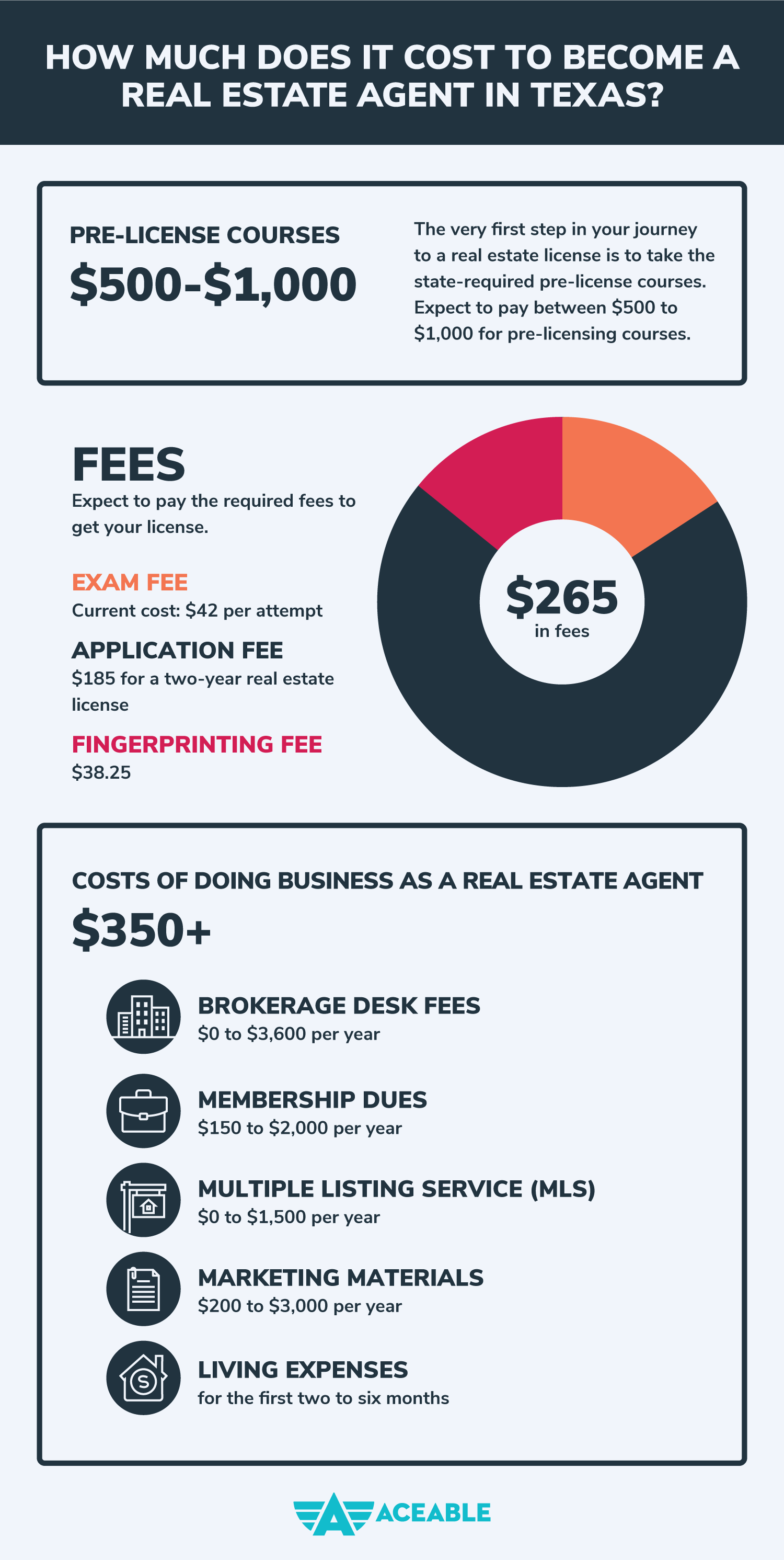
Minnesota has a number of requirements that you must meet to be eligible for a real-estate license. The Minnesota Commerce Department aims to make sure that real estate agents are qualified and capable of working in the state. The requirements include being at least eighteen years old and U.S. citizens or lawfully admitted aliens. While citizenship is not an issue for most users it can lead to denial of a license if there are any criminal records, unpaid judgements or disciplinary actions against professional licenses. An unlicensed activity in real estate is another reason not to be granted a license.
Pre-license education
Pre-license education is an important part of becoming a licensed real estate agent in Minnesota. This can increase your chances of passing and help you avoid retaking the exam. It takes approximately four months to become a Minnesota real estate agent. Pre-licensing is contingent on passing the exam, passing the education course and being sponsored by a licensed brokerage.
A great way to start your education for your real estate license in Minnesota is by taking a pre-license course online. There are three courses of 30 hours that can help you earn your license. These courses cover topics like valuation, financing, contracts and real estate principles. The course can also be completed online via ContinuingEd Express. They offer live streaming and online courses.

Continued education requirements
Minnesota real estate agents must complete at minimum fifteen hours of continuing education every year. It is 30 hours over a two year renewal period. You have many options to fulfill the real estate CE requirements, including live classes and on-demand webinars. Kaplan offers on-demand as well as live courses to meet state continuing education requirements. Kaplan's online courses qualify for real estate CE credit of 3.75 hours.
Minnesota Real Estate Commission adopts a new system for real-estate CE credit. This means real estate licensees have to complete at most eight hours of continuing training in a single day. But no more than 15 hours per 24-hour period. To meet Minnesota's continuing educational requirements, salespeople and brokers must complete a prelicensing CE course each year. These courses offer 3.75 hours of CE credit, and they must be completed before June 30, 2022. Those who wish to take a course without a live instructor can complete it online through an MNR Academy site. Many courses can be done online, but some live-streamed. Exam prep courses include both the national exam and the state portion of the Minnesota licensing exam.
Exam
Examining to get a real estate license in Minnesota is a process that must be passed in order to practice in the state. This exam helps to protect the public as it ensures that each person has a certain level or competence. The examination is intended to check whether an individual meets the standards of safe practice set by the state regulatory agency. Pearson VUE administers Minnesota's real estate licensing examination.
A real estate license in Minnesota requires applicants to have completed a prelicense education course as well as a state exam. The state mandates that applicants must be at the least eighteen and a lawful permanent residence of the United States. Minnesota has reciprocity arrangements with several other states including Wisconsin. Minnesota has reciprocity agreements with several other states. You do not need to take any prelicensing courses if you're a licensed agent in one of these states. You can apply through the PULSE Portal and email a letter certifying your current license and pass the state portion of the exam. In Wisconsin, however, you must take a 13-hour Wisconsin-to-Minneseta prelicensing course.

Cost
You must first obtain a Minnesota license to be a real-estate agent. With the exception of the actual exam which must be taken in person, the process can be done virtually online. This article will detail the process and tell you how much it will cost. We will also discuss the exam content and provide you with some resources for more information.
Minnesota requires that all licensed real estate agents have completed at least 90 hours in pre-licensing training. These can be completed online or via classroom classes. The cheapest option is the online on-demand course. The average package contains three courses and costs between $200-300.
FAQ
How can I eliminate termites & other insects?
Your home will be destroyed by termites and other pests over time. They can cause serious damage and destruction to wood structures, like furniture or decks. A professional pest control company should be hired to inspect your house regularly to prevent this.
Should I use a broker to help me with my mortgage?
A mortgage broker may be able to help you get a lower rate. Brokers have relationships with many lenders and can negotiate for your benefit. Some brokers do take a commission from lenders. You should check out all the fees associated with a particular broker before signing up.
What amount should I save to buy a house?
It all depends on how many years you plan to remain there. You should start saving now if you plan to stay at least five years. But if you are planning to move after just two years, then you don't have to worry too much about it.
How can I calculate my interest rate
Market conditions impact the rates of interest. The average interest rate over the past week was 4.39%. Divide the length of your loan by the interest rates to calculate your interest rate. For example: If you finance $200,000 over 20 year at 5% per annum, your interest rates are 0.05 x 20% 1% which equals ten base points.
Statistics
- Some experts hypothesize that rates will hit five percent by the second half of 2018, but there has been no official confirmation one way or the other. (fortunebuilders.com)
- The FHA sets its desirable debt-to-income ratio at 43%. (fortunebuilders.com)
- It's possible to get approved for an FHA loan with a credit score as low as 580 and a down payment of 3.5% or a credit score as low as 500 and a 10% down payment.5 Specialty mortgage loans are loans that don't fit into the conventional or FHA loan categories. (investopedia.com)
- This seems to be a more popular trend as the U.S. Census Bureau reports the homeownership rate was around 65% last year. (fortunebuilders.com)
- When it came to buying a home in 2015, experts predicted that mortgage rates would surpass five percent, yet interest rates remained below four percent. (fortunebuilders.com)
External Links
How To
How to manage a rental property
Although renting your home is a great way of making extra money, there are many things you should consider before you make a decision. We will show you how to manage a rental home, and what you should consider before you rent it.
Here's how to rent your home.
-
What should I consider first? Take a look at your financial situation before you decide whether you want to rent your house. If you have outstanding debts like credit card bills or mortgage payment, you may find it difficult to pay someone else to stay in your home while that you're gone. It is also important to review your budget. If you don't have enough money for your monthly expenses (rental, utilities, and insurance), it may be worth looking into your options. This might be a waste of money.
-
How much is it to rent my home? It is possible to charge a higher price for renting your house if you consider many factors. These include things like location, size, features, condition, and even the season. Remember that prices can vary depending on where your live so you shouldn't expect to receive the same rate anywhere. Rightmove estimates that the market average for renting a 1-bedroom flat in London costs around PS1,400 per monthly. This means that if you rent out your entire home, you'd earn around PS2,800 a year. That's not bad, but if you only wanted to let part of your home, you could probably earn significantly less.
-
Is this worth it? It's always risky to try something new. But if it gives you extra income, why not? Before you sign anything, though, make sure you understand exactly what you're getting yourself into. Your home will be your own private sanctuary. However, renting your home means you won't have to spend as much time with your family. These are important issues to consider before you sign up.
-
Are there any advantages? You now know the costs of renting out your house and feel confident in its value. Now, think about the benefits. There are plenty of reasons to rent out your home: you could use the money to pay off debt, invest in a holiday, save for a rainy day, or simply enjoy having a break from your everyday life. Whatever you choose, it's likely to be better than working every day. Renting could be a full-time career if you plan properly.
-
How do I find tenants? Once you've decided that you want to rent out, you'll need to advertise your property properly. Online listing sites such as Rightmove, Zoopla, and Zoopla are good options. Once you receive contact from potential tenants, it's time to set up an interview. This will help you evaluate their suitability as well as ensure that they are financially secure enough to live in your home.
-
How can I make sure I'm covered? If you are worried about your home being empty, it is important to make sure you have adequate protection against fire, theft, and damage. In order to protect your home, you will need to either insure it through your landlord or directly with an insured. Your landlord may require that you add them to your additional insured. This will cover any damage to your home while you are not there. If you are not registered with UK insurers or if your landlord lives abroad, however, this does not apply. In this case, you'll need to register with an international insurer.
-
It's easy to feel that you don't have the time or money to look for tenants. This is especially true if you work from home. It's important to advertise your property with the best possible attitude. Make sure you have a professional looking website. Also, make sure to post your ads online. It is also necessary to create a complete application form and give references. While some people prefer to handle everything themselves, others hire agents who can take care of most of the legwork. You'll need to be ready to answer questions during interviews.
-
What happens once I find my tenant If you have a lease in place, you'll need to inform your tenant of changes, such as moving dates. You can negotiate details such as the deposit and length of stay. Keep in mind that you will still be responsible for paying utilities and other costs once your tenancy ends.
-
How do you collect the rent? When it comes time for you to collect your rent, check to see if the tenant has paid. If they haven't, remind them. After sending them a final statement, you can deduct any outstanding rent payments. If you're struggling to get hold of your tenant, you can always call the police. If there is a breach of contract they won't usually evict the tenant, but they can issue an arrest warrant.
-
How can I avoid problems? Although renting your home is a lucrative venture, it is also important to be safe. You should install smoke alarms and carbon Monoxide detectors. Security cameras are also a good idea. You should also check that your neighbors' permissions allow you to leave your property unlocked at night and that you have adequate insurance. You must also make sure that strangers are not allowed to enter your house, even when they claim they're moving in the next door.